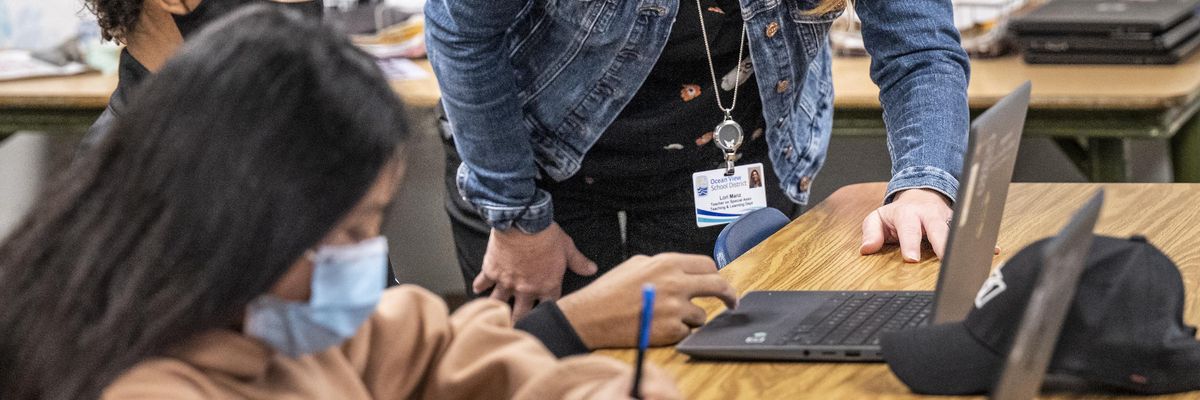New polling out Tuesday reveals pervasive burnout among the nation's educators as pandemic-related staffing shortages and other difficulties drive a potential exodus from the teaching profession.
Released by the National Education Association, the nation's largest union of any profession, the member survey shows, according to NEA president Becky Pringle, that "after persevering through the hardest school years in memory, America's educators are exhausted and increasingly burned out."
While staffing shortages at the nation's schools existed pre-pandemic, Pringle said the current situation represents "an unprecedented staffing crisis across every job category" that hurts both education professionals and students alike.
Nearly three-quarters of respondents, for example, said that they've had to fill in for colleagues or take on additional duties. Schools being short-staffed also means students who need one-on-one instruction aren't getting that need met.
The survey was conducted January 14-24 by GBAO Strategies and paints a clear picture of educators who are absolutely fried.
According to an NEA statement, 90% of members said feeling burned out is a serious problem, and 67% said it was a very serious problem. Ninety-six percent of respondents support boosting educator salaries to help address the problem.
Covid-related stress is widespread, as 91% report it being a serious problem for educators.
That stress is prompting many to at least start thinking about packing their bags.
The survey found that 55% of members plan to leave the field sooner than planned because of the pandemic compared to just 37% who felt that way in August.
In terms of creating safer environments amid the airborne virus, 95% of members say they back improved ventilation in schools though just 38% reported witnessing such improvements.
Related Content
Teachers Unions Call for Remote Learning, Increased Safety Measures as Covid Surges
Julia Conley
And while public health experts stress the need for continued mask-wearing, over a third of NEA members say mask and mitigation policies have actually been loosened since the start of the school year.
Pringle didn't mince words in describing the situation.
"This is a five-alarm crisis," she said. "We are facing an exodus as more than half of our nation's teachers and other school staff are now indicating they will be leaving education sooner than planned. If we're serious about getting every child the support they need to thrive, our elected leaders across the nation need to address this crisis now."
Beyond getting "our collective respect," she said that properly responding to the crisis entails "paying educators like the professionals they are, ensuring that their students can get the mental health support they need, protecting them from Covid, and addressing the staff shortages so our educators can do what they do best--helping every student thrive."


